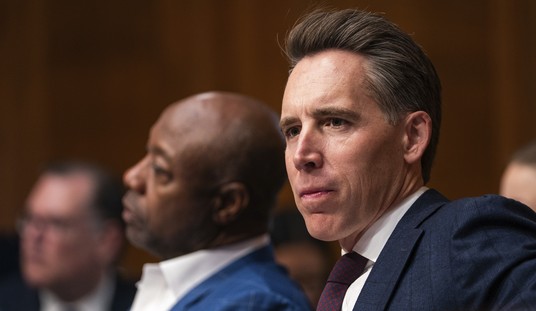In January 2013, after the president had been re-elected and before the IRS abuse scandal broke, President Obama’s campaign was crowing about two things. It was crowing about its love of all things data, and it was crowing that it had morphed from a presidential campaign into a permanent “social welfare” organization. Its name had to change, from Obama for America, to Organizing for America, to Organizing for Action. But the personnel stayed in place, and the group’s massive database went seamlessly along with them into the new future of permacampaigning.
NBC’s Michael Isikoff reported on OfA’s shapeshifting on January 28, 2013.
Organizing For Action (OFA), the advocacy group set up in recent weeks by the president’s top political aides, has already acquired access to the database under a leasing agreement with the Obama campaign, Katie Hogan, a former Obama campaign aide who is now serving as spokeswoman for the lobbying group, told NBC News. The information will be used to unleash an “army of the door knockers” to back the president’s legislative agenda as well as raise money for “issue ads” – particularly in crucial congressional districts, she said.
—
Dubbed the “nuclear codes” by campaign aides, the Obama campaign database is widely described as one of the most powerful tools ever developed in American politics. According to published reports, it contains the names of at least 4 million Obama donors – as well as millions of others (the campaign has consistently refused to say how many) compiled from voter registration rolls and other public databases. In addition, the campaign used sophisticated computer programs — with code names like “Narwhal” — to collect information through social media: Anybody who contacted the campaign through Facebook had their friends and “likes” downloaded. If they contacted the campaign website through mobile apps, cellphone numbers and address books were downloaded. Computer “cookies” captured Web browsing and online spending habits.
Obama campaign managers Jim Messina and Stephanie Cutter made the one-inch leap from the presidential campaign to the post-presidential campaign. They dropped a name tag on one end of a table and picked up a new one on the other end. The IRS never questioned them or the group or its purpose at all.
“The way it’s organized, we legally can’t participate in elections,” Stephanie Cutter, a top Obama campaign official who now serves on the board of OFA, said at a recent Politico-sponsored inaugural event. “But that doesn’t mean the issues we’re organizing around won’t mobilize the American people to vote for things — to vote for that economy we’ve been working for, to vote for immigration reform, to vote for common sense gun reforms. I think we can affect elections, we just can’t legally be involved in them — for this particular organization.”
Reading this story in the context of the just-concluded campaign, it all seemed mildly spooky. Obama’s campaign had built a massive and highly connected database that it intended to use to propel the campaign directly into everyday life. This database was far more comprehensive and sophisticated and even intrusive than any campaign information set that had ever been built before. Presidential campaigns usually disband shortly after elections, but this presidential campaign had found a way to live on in the very same legal code that was being used against the president’s enemies. That database would keep getting bigger, and it would remain a tool in what was now a permanent political army that answers ultimately not to a party but to one man, the president.
In the current context, though, it comes across as more sinister. The Internal Revenue Service was literally policing the free speech of Americans who opposed the president’s agenda, while at the very same time it gave a free pass to a transparently political group that was slipping into tax-exempt “social welfare” dress and carrying the president’s massive political database along with it. OfA handed OfA the keys to the database kingdom. At the same time, the National Security Agency was allegedly building its own massive database on all Americans. The American people knew neither of the IRS nor of the NSA’s actions.
The IRS became an arm of the Obama campaign, at least in practice if not in name, from 2010 to 2012. Did the NSA do anything similar? Was there any overlap at all between the data-mining tools and techniques used by the Obama campaign and the data-mining tools and techniques used by the National Security Agency?









Join the conversation as a VIP Member